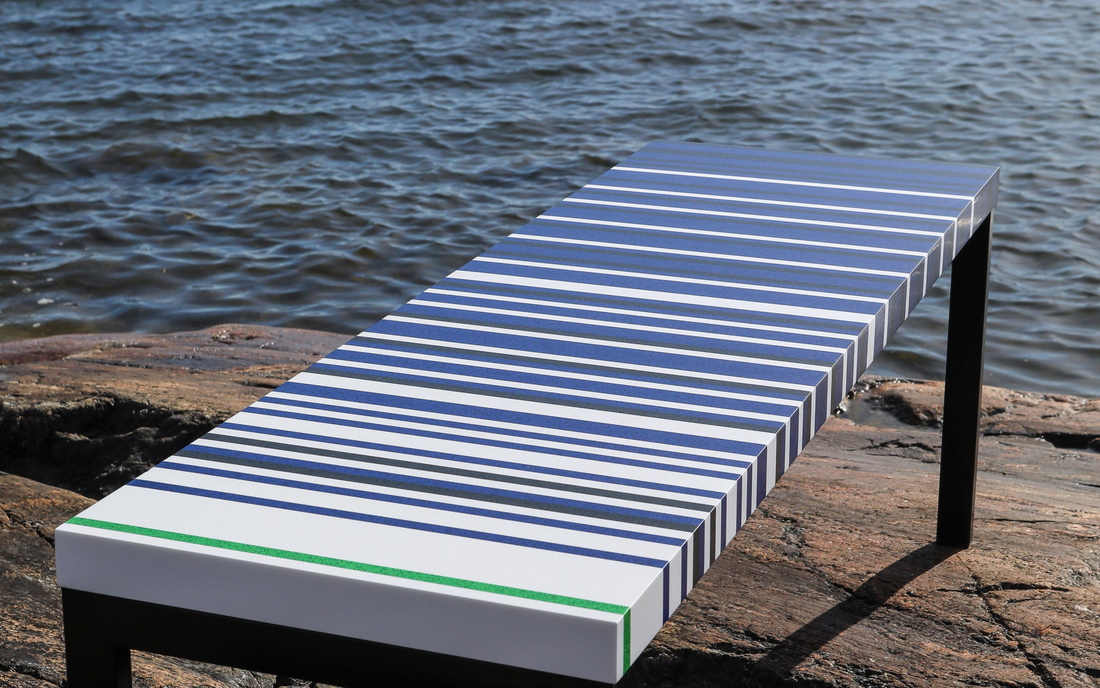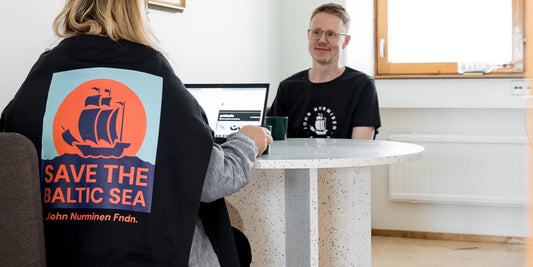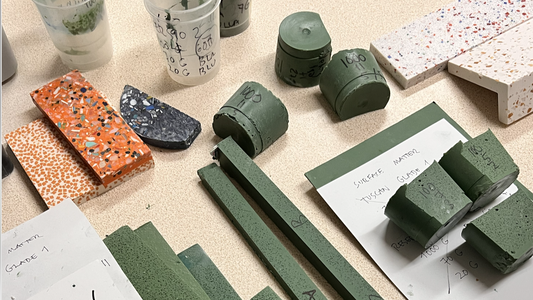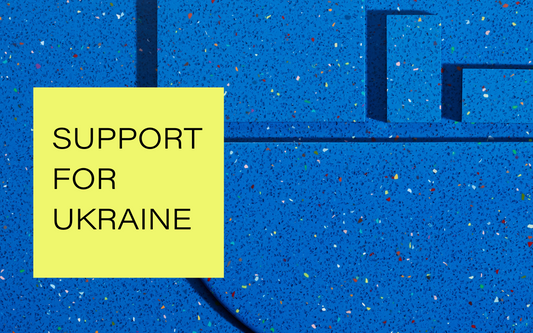Durat is a product whose original product development objective over thirty years ago was to reduce the amount of plastic waste ending up in landfills. Recycled post-industrial waste plastic is used in the manufacture of Durat. Approximately 30 % of all Durat products is recycled material. In accordance with its recycling principle, Durat products can also be fully recycled.
Offcuts made during furniture production are used to manufacture new material - the material is fully recycled and no waste is generated. Using the offcut plastic replaces an equivalent amount of virgin raw material in the manufacture of material. This results in the considerable saving of resources as compared to other, conventional composite materials.
Durat’s lifecycle is extremely long. If necessary, its surface can be renewed with a light sanding.
Durat has an emission classification of M1 for building materials. Using Durat as a building material promotes the earning of LEED (Leadership in Energy and Environmental Design) points.
Acting responsibly
100 % renewable energy is used in the company’s production operations. The origin of this energy is certified in accordance with the Guarantee of Origin system. The solar panels installed on the plant roof provide approximately 15 % of the plant’s total energy needs.
All flights taken in connection with Durat business are compensated by acquiring emission allowances from the EU Emissions Trading System (EU ETS) using the CO2 Elimination by CO2Esto Ltd. service. In addition to this, every effort is made to replace air travel with train travel wherever possible.
Durat supports John Nurminen Foundation efforts to save the Baltic Sea.
Durat Circular service
Durat buys back all Durat furniture being taken out of use, refurbishes them and then sells them again. Refurbished products are sold as Durat Circular products.
The refurbishing and reuse of products is the primary way of extending a product’s lifecycle. This reduces the amount of energy used in the manufacture of new products and the need for virgin materials.
Durat has been chosen to Sitra’s lists: The most interesting companies in the circular economy vol 2.0 and vol 2.1.
Goals
Increasing the percentage of recycled materials
The main goal of our product development work is to increase the amount of recycled materials used to make up at least 80 % of the end product.
We are constantly developing all company operations so that we will be able to reduce our operational carbon footprint by 30-40 % of the current level in the near future.
Our strategic goal is to be comprehensively in line with the practices and principles of sustainable development. This goal affects all of our value choices.
Some of the more important operational measures we take to reduce our environmental impact include: increasing the amount of ecological raw materials used, which is enabled by our product development; using renewable energy, such as solar panels, in production; and the company’s own fleet of electric vehicles, which are used for the delivery and installation of our products.
Carbon-neutral within two years
Durat’s goal is to be carbon-neutral by no later than 2025, when Finland will transition to the legislative control of the entire lifecycle carbon footprint in new construction. In order to achieve this goal, the company’s carbon footprint will be reduced in accordance with the EN 15978 standard.
We constantly conduct lifecycle assessments (LCA) of greenhouse gas emissions and calculate our carbon footprint on existing and new products.
The first Environmental Product Declaration (EPD) for our products is nearing completion.
In order to minimise the VOC emissions from production, we have been using active carbon filters in our plant for several years. The system is updated continuously in order to eliminate any odours caused by our operations. The company’s goal for the future is also to minimise the amount of waste significantly, by at least 70 % of our current level.




